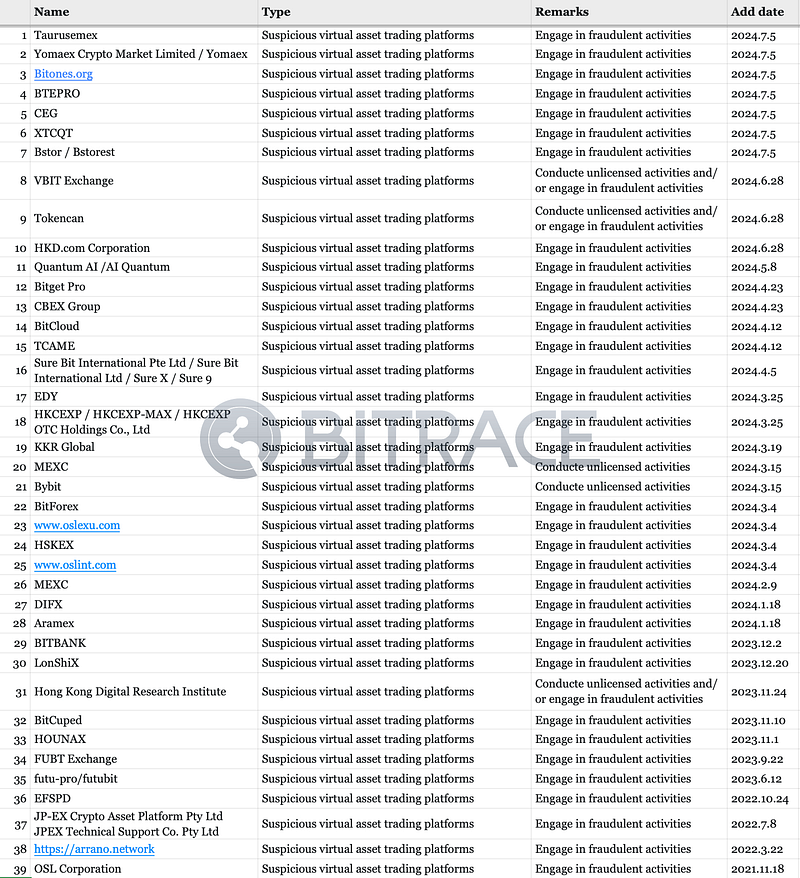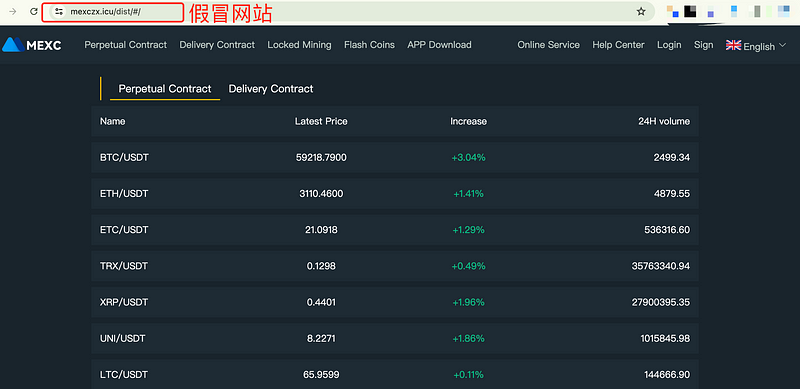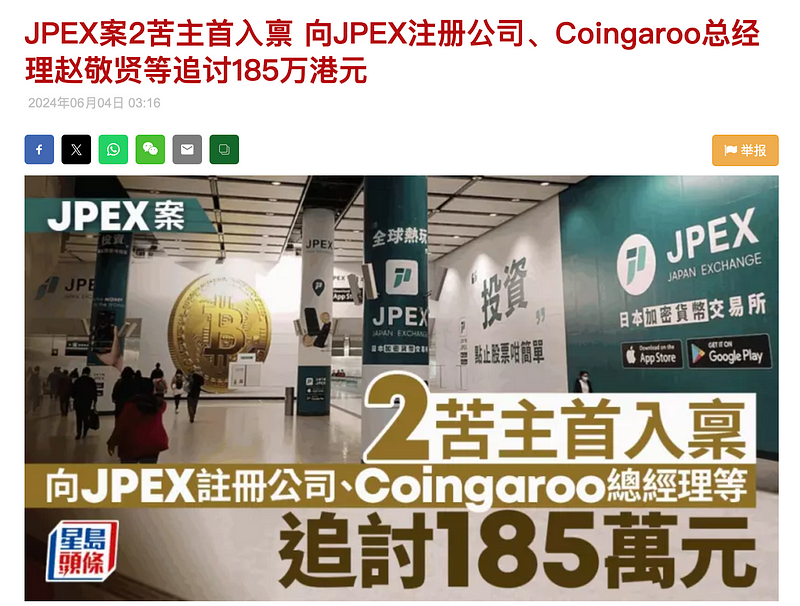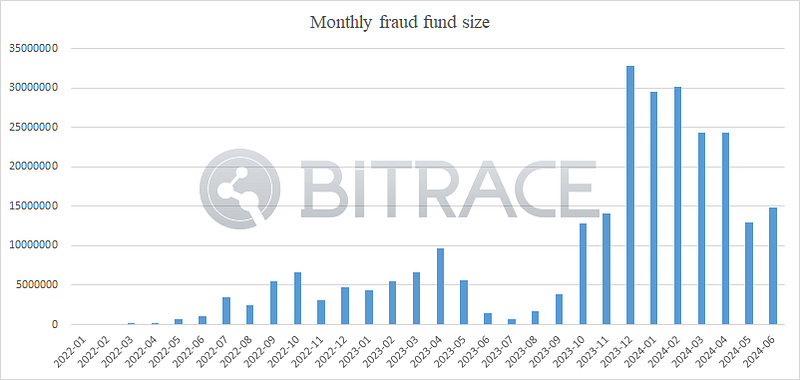Hong Kong SFC updates its alert list: Positive changes in the local crypto market

Recently, the Hong Kong Securities and Futures Commission (SFC) has revealed another batch of suspicious virtual asset trading platforms, issuing warnings to the public. This sends a clear signal to the market: the SFC is closely monitoring the latest developments in the cryptocurrency sector and is strictly cracking down on illegal financial activities to ensure market fairness and transparency.
Since 2021, the SFC has disclosed a total of 39 suspicious platforms related to the crypto market, including exchanges like MEXC and Bybit. What defines a suspicious virtual asset trading platform according to the SFC, and why are these platforms being warned?
What Constitutes a “Suspicious” Virtual Asset Trading Platform?
Bitrace categorizes the suspicious platforms disclosed by the SFC into three types: platforms established for fraudulent activities, platforms with actual business operations but partially involved in fraud, and platforms with actual business operations but lacking licenses.

Platforms Established for Fraudulent Activities
These platforms are warned by the SFC for impersonating official exchanges and fabricating false corporate information to entice users into investing. For example, a platform impersonating MEXC claimed to be a legitimate virtual asset trading entity but was involved in fraudulent activities. Victims were asked to deposit funds into designated bank accounts for investment purposes, but faced difficulties when attempting to withdraw funds.

These types of sites have frequently appeared in past fraudulent activities such as “forex investment” and “cryptocurrency quantitative investment,” causing significant financial losses to innocent overseas Chinese, foreigners, and local non-professional investors.
Platforms with Actual Business Operations but Partially Involved in Fraud
A typical example of this type is JPEX. Last year, the SFC pointed out that the cryptocurrency trading platform JPEX claimed to have received investment from a Hong Kong-listed company and falsely claimed to have a license to operate a virtual asset trading platform. The next day, JPEX imposed high withdrawal fees to restrict users from withdrawing funds. Additionally, the exchange offered extremely high returns on some of its products, but some investors complained about being unable to successfully withdraw virtual assets or having their account balances altered, ultimately leading to a rapid collapse.

These institutions often have genuine business operations but intentionally or unintentionally cross legal boundaries during some business activities.
Platforms with Actual Business Operations but Lacking Licenses
According to information disclosed on the SFC’s official website, official exchanges like MEXC and Bybit were listed on the SFC’s warning list (numbers 20 and 21) for conducting business targeting Hong Kong investors without obtaining any licenses from the SFC.
While this does not necessarily imply that these trading platforms’ operations in other regions are non-compliant, it has caused negative publicity for the associated brands. It demonstrates that compliance is the cornerstone of centralized trading platform operations.
Is Hong Kong’s Regulatory Policy Effective?
Bitrace has been closely monitoring the status of the virtual asset trading market in Hong Kong. Based on fund risk audits of the local VAOTC group business addresses, the volume of crypto funds (USDT) related to fraudulent activities entering Hong Kong’s secondary cryptocurrency market through OTC channels has significantly decreased since the first quarter of 2024, currently halving from its peak.

This may be due to the Hong Kong government’s proposal on February 8, 2024, to establish a licensing system for virtual currency OTC platforms (VAOTCs), requiring all VAOTCs to apply for licenses from the customs. This has squeezed out some of the risky funds, indicating that local regulatory intervention has promoted the maturity of the Hong Kong cryptocurrency market.
Conclusion
The Hong Kong SFC is gradually building a compliant cryptocurrency regulatory environment to provide security for investors and drive the industry towards greater maturity and standardization. For local businesses aspiring to operate compliantly, this is also an opportunity to build brand trust and establish a strong business safeguard.
Contact us:
Website: https://www.bitrace.io/
Email: bd@bitrace.io
Twitter: https://x.com/Bitrace_team